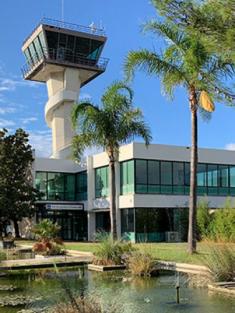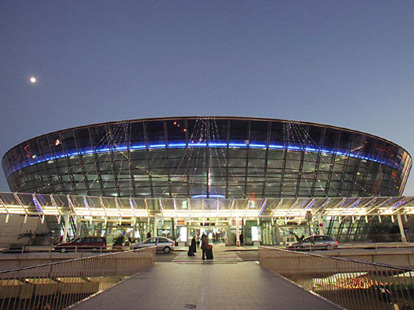Faced with many allegations that the project is adverse to preserving the environment, the decision made today by the Administrative Court of Marseille makes it possible to recall the fundamentals of the project and obviously does not retain a number of counter-truths. Thus, the decision points out that “the project does not have the effect of increasing air traffic significantly and with certainty”.
Indeed, as Nice Cote d’Azur Airport has always defended, the court recalls that an increase in the number of passengers “will essentially be allowed by continually optimising the aircraft load rate and increasing the capacity of aircraft” and not by increasing the number of aircraft circulating within the airport – an increase that the judges have described as “hypothetical”.
In addition, the airport would like to recall the real purpose of this project, its impacts and the challenges it addresses.
As the manager of Nice Cote d’Azur Airport, Aéroports de la Cote d’Azur has an obligation to implement all the necessary means to ensure the best passenger experience and safety conditions for passengers using its terminals.
In 2019, 14.5 million passengers, or 7.25 million travellers, passed through Nice Airport, which therefore exceeded its maximum theoretical capacity set at 14 million passengers.
Although the health scenario has influenced air traffic in recent months, all forecasts suggest that it will regain its 2019 level at the very least in the next few years. Moreover, it is more than likely that all or some of the habits adopted in terms of health management will continue, particularly preventive measures, physical distance between passengers and, depending on the conditions, specific checks, which would extend travel time within the terminals.
The ongoing recovery of air transport and the preservation of an appropriate health policy therefore combine to justify the adaptation of our infrastructure to ensure the best passenger experience and safety conditions.
As regards the projected development of passenger traffic, the airport would like to recall the following objective data on this occasion:
- The extension of Terminal 2 will increase the theoretical capacity of the airport to 18 million passengers, 1.75 million more people than in 2019;
- 36% of passengers are residents and 24% are frequent travellers, particularly for work purposes, which contradicts the idea of “overtourism” by limiting the number of new travellers to less than one million, over 12 months and for a very large area;
- Finally, the increase in the number of passengers and the number of aircraft movements are not proportional. As a reminder, between 2012 and 2019, the number of passengers accommodated in the terminals increased by 29% for an increase of less than 1% in the number of aircraft movements over the same period.
“There’s no other mode of transport that requires so little construction to allow travellers to directly connect two points that are several hundred or thousands of kilometres apart. Our Terminal 2 extension project, which doesn’t require soil artificialisation, represents the best construction-connection ratio”, says Franck Goldnadel, Chairman of the Board of Aéroports de la Côte d’Azur.
In addition, Nice Cote d’Azur Airport would like to recall that it has always been a pioneer when it comes to reducing its greenhouse gas emissions. It was the first airport in France to achieve carbon neutrality by means of offsetting in 2016. In 2020, it made a commitment to achieve neutrality without any offsetting before 2030, by integrating the Terminal 2 extension project into its calculations. It has continued to implement innovative solutions to reduce its residual emissions. Thus, it has established an unprecedented partnership with the National Forestry Office and neighbouring municipalities to reforest its region, maintain young forests and thus create natural carbon sinks capable of storing, in the short term, up to 300 tons of CO2 equivalent per year.
In 2021, Nice Côte d’Azur Airport was the first airport in France to achieve Airport Carbon Accreditation level 4+, the most demanding standard, acting on the reduction of its emissions in absolute terms.
In addition to the steps taken by the airport to achieve this ambitious result, and aware of the environmental impact of aircraft movements, for which it is not directly responsible, Aéroports de la Cote d’Azur has also announced measures to accelerate the reduction of aircraft emissions when approaching, taxiing or taking off from the airport. It is working with the entire sector to facilitate innovation and the development of low carbon solutions in the air, by means of electric aviation or the integration of bio-fuel.
This ambitious policy extends the sector’s efforts, measurable by the reduction of -20% of CO2 emissions per passenger for 5 years, during the approach and take-off phase (LTO cycle, for landing and take-off).


